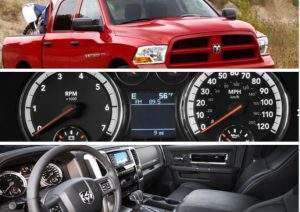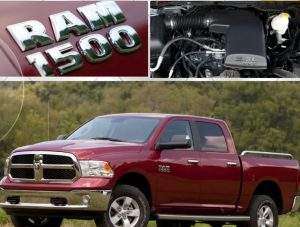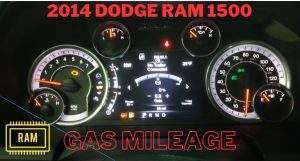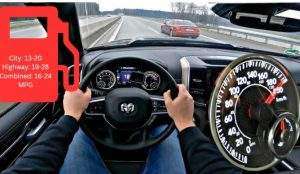The BMW 330i is a popular luxury vehicle, blending comfort and performance. But the question of whether you need to use premium gas or not can be confusing. It’s important to understand what type of fuel your car needs in order to ensure that you’re getting the best performance and fuel economy out of your car.
In this article, we’ll dive into whether the BMW 330i requires premium gas or not and discuss other important details related to fueling up your car.
Does BMW 330i Require Premium Gas?
Yes, the BMW 330i requires premium gas. The car’s manual states that it requires gasoline with an octane rating of 91 or higher. Using lower octane gas may cause engine knocking or damage, which can be expensive to repair.
Premium gas is more expensive than regular gas, but it is necessary for the proper functioning of your BMW 330i.
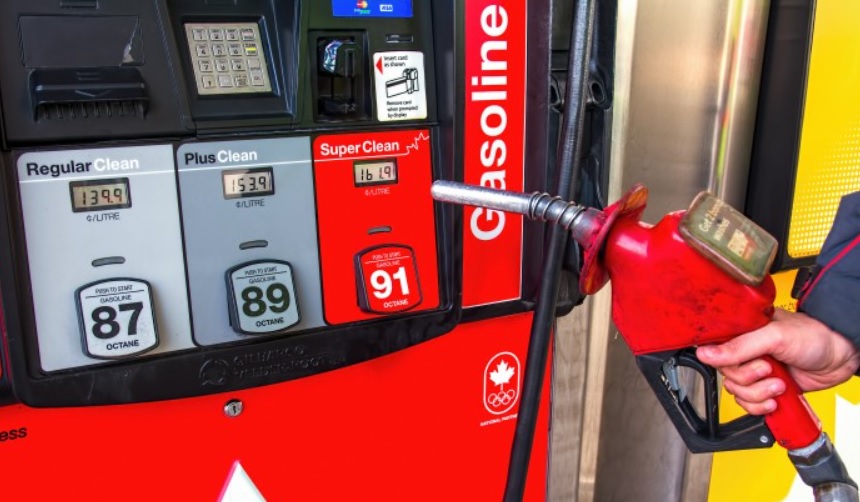
2005 To 2023 BMW 330i Gas Type
| Year | Model | Fuel Type |
| 2005 – 2023 | 330i | Premium unleaded |
| 2005 – 2023 | 330i xDrive | Premium unleaded |
Why Does BMW 330i Require Premium Gas?
The BMW 330i is equipped with a high-performance engine that requires a higher octane fuel to run at its best. The engine is designed to operate with a higher compression ratio, which creates more power and efficiency but also generates more heat.
Premium gas has a higher octane rating than regular gas, which means it can withstand higher temperatures without detonating prematurely.
If you use regular gas in a car that requires premium, the engine may not perform as well, and you may experience knocking or pinging sounds.
In some cases, using regular gas in a car designed for premium can cause engine damage.
Benefits of Using Premium Gas in Your BMW 330i:
- Better Engine Performance: Premium gas contains higher levels of detergents and additives that help keep the engine clean and improve performance.
- Increased Fuel Efficiency: High-performance engines are more efficient when they use premium gas because it burns cleaner and produces more power.
- Prevents Engine Knocking: Using premium gas prevents engine knocking, which can cause damage to the engine and affect the car’s performance.
- Longer Engine Life: Using high-quality fuel can help extend the life of your car’s engine by reducing wear and tear.
Are there any alternatives to using premium gas in a BMW 330i?
While the manufacturer recommends using premium gas, there are some alternatives you may consider. One option is to use mid-grade gas, which has an octane rating between regular and premium.
However, it’s important to note that using mid-grade gas may cause a slight decrease in performance and fuel efficiency. Another option is to use regular gas, but only in emergencies.
If you do use regular gas, you should avoid driving the car aggressively and take it to a mechanic as soon as possible to check for any potential engine damage.
What Happens if You Use Regular Gas in Your BMW 330i?
It may not immediately cause harm to the engine or other components, but there could be some negative consequences in the long run. Here are a few potential outcomes of using regular gas in a BMW 330i:
- Decreased Performance: The BMW 330i is a high-performance vehicle that is designed to deliver a certain level of horsepower and torque. Using regular gas with a lower octane rating than what is recommended can cause the engine to run less efficiently, resulting in decreased performance, such as reduced horsepower and torque.
- Reduced Fuel Economy: Regular gas may have lower energy content than premium gas, which can result in reduced fuel economy. This means you may end up spending more money on gas in the long run.
- Engine Damage: While using regular gas may not cause immediate harm to the engine, over time, it could potentially cause damage to the engine and other components. This is especially true if the car is driven under high-stress conditions or for extended periods. Knocking or pinging could occur, and this can lead to engine damage over time.
- Increased Emissions: Using regular gas may result in increased emissions, as the engine may not be running as efficiently as it would with premium gas. This can contribute to air pollution and may result in higher emissions levels during emissions testing.
Overall, it’s best to use premium gasoline with an octane rating of 91 or higher for optimal performance and to avoid potential engine damage in the long run.
Can I use ethanol-blended gasoline in my BMW 330i?
It is not recommended to use ethanol-blended gasoline in a BMW 330i unless it is specifically designed to use such fuel. BMW vehicles are not designed to run on ethanol-blended gasoline, which contains a higher percentage of ethanol than traditional gasoline.
Ethanol is a biofuel that is made from corn or other renewable resources, and it is often added to gasoline as an octane booster and to reduce emissions.
However, ethanol can be corrosive to certain engine parts, such as rubber seals and fuel lines, which can cause damage to the engine over time.
In addition, using ethanol-blended gasoline will lead to decreased fuel efficiency and performance, as well as potential engine damage.
How much does premium gas cost compared to regular gas?
The cost of premium gas varies depending on your location and the time of year, but it’s generally more expensive than regular gas. The price difference can be significant, with some areas charging 20-30 cents more per gallon for premium gas.
However, it’s important to consider the potential cost savings in the long run by using premium gas in your BMW 330i. Premium gas can help prevent engine damage and prolong the life of your car’s engine, which can save you money on costly repairs down the road.
What is the average range of a BMW 330i on a full tank?
The average range of a BMW 330i on a full tank is approximately 440-480 miles or 700-770 kilometers, depending on driving conditions and habits.
However, based on the estimated fuel efficiency of the BMW 330i, which is around 28 miles per gallon (MPG) in combined city and highway driving, and the fuel tank capacity of approximately 15.6 gallons, the average range of a BMW 330i on a full tank of gasoline is approximately 436 miles.
If the estimated fuel efficiency of the BMW 330i is 25 miles per gallon in the city and 34 miles per gallon on the highway, the average range of a BMW 330i on a full tank of gasoline will be different based on the proportion of city and highway driving.
For example, if you drive mostly on highways and get an average of 34 MPG, the car’s range on a full tank of gas would be approximately 530 miles (34 MPG x 15.6 gallons).
Similarly, if you drive mostly in the city and get an average of 25 MPG, the car’s range on a full tank of gas would be approximately 390 miles (25 MPG x 15.6 gallons).
How does the fuel efficiency of a BMW 330i compare to other similar cars in its class?
Compared to other similar cars in its class, such as the Audi A4, Mercedes-Benz C-Class, and Lexus IS, the BMW 330i’s fuel efficiency is generally competitive.
For example, the 2021 Audi A4 has an estimated fuel efficiency of 28 MPG in combined city and highway driving, while the 2021 Mercedes-Benz C300 has an estimated fuel efficiency of 25 MPG in combined city and highway driving. The 2021 Lexus IS has an estimated fuel efficiency of 24 MPG in combined city and highway driving.
However, it’s important to note that fuel efficiency can vary depending on the specific model, trim level, and options selected. In addition, driving habits and conditions can also have a significant impact on fuel efficiency. Overall, the BMW 330i is generally considered to be a relatively fuel-efficient luxury sports sedan compared to other cars in its class.
The fuel efficiency of a BMW 330i is competitive with other similar cars in its class, with an average combined MPG of around 28-30.
What to do before filling the gas tank
- Check your Gas Cap: Check your gas cap, it says what gas to put in.
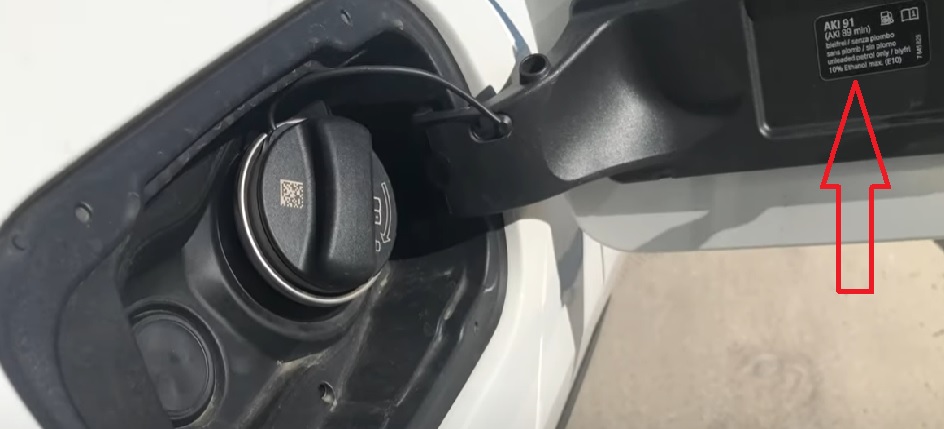
- Or Check the Car Manual: Check your car’s manual to see what kind of fuel it requires. BMW 330i requires gasoline with an octane rating of 91 or higher.
- Look for the Octane Rating: When you are at the gas station, look for the octane rating on the pump. Premium gas usually has an octane rating of 91 or higher.
- Use a Reputable Gas Station: Use a gas station that sells high-quality gas. Avoid using gas stations that have low prices or are unfamiliar to you.
- Fill up the Tank: Fill up the tank with the recommended fuel, and make sure the gas cap is secure.
Conclusion
In conclusion, the BMW 330i requires premium unleaded gasoline with an octane rating of 91 or higher for optimal performance. While using regular gas is an option, it’s not recommended and could result in reduced performance and potential damage to the engine.
If you want to get the most out of your BMW 330i and ensure its longevity, it’s best to use premium gas. So, the next time you pull up to the pump, remember to fill up with premium unleaded gasoline to keep your BMW 330i running smoothly.

